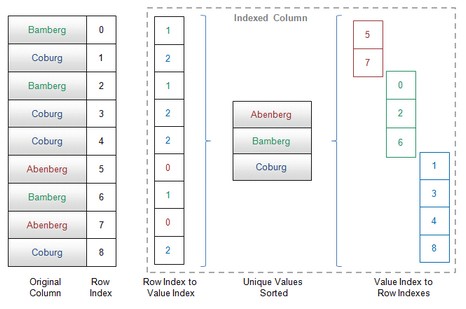|
Text Mining
Text mining is the discovery by computer of new, previously unknown information, by automatically extracting information from different written resources. Text mining is different from what we’re familiar with in web search. |

|
In search, the user is typically looking for something that is already known and has been written by someone else. Text mining is a variation on a field called data mining, that tries to find interesting patterns from large databases.
Information Retrieval (IR)
| Information retrieval is related to theory, algorithms, and experiments that concern search and storage of text, images, video, and other such data. |

|
|
Data Indexing
Indexing is the act of classifying and providing an index in order to make items easier to retrieve. One of the indexes is a list of sorted keys, each of which identifies a unique record. |

|
|
Why don’t blind people skydive? Because it scares the hell out of their dogs. |